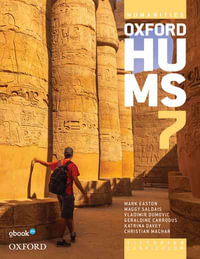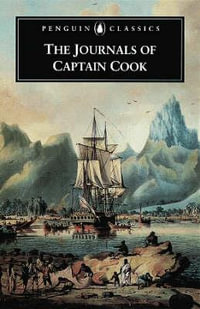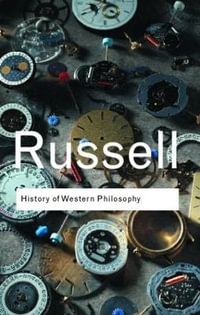
The Great American Transit Disaster
A Century of Austerity, Auto-Centric Planning, and White Flight
Paperback | 2 December 2024 | Edition Number 1
At a Glance
Paperback
RRP $46.95
$37.75
20%OFF
Aims to ship in 7 to 10 business days
When will this arrive by?
Enter delivery postcode to estimate
Many a scholar and policy analyst has lamented American dependence on cars and the corresponding lack of federal investment in public transportation throughout the latter decades of the twentieth century. But as Nicholas Dagen Bloom shows in The Great American Transit Disaster, our transit networks are so bad for a very simple reason: we wanted it this way.
Focusing on Baltimore, Atlanta, Chicago, Detroit, Boston, and San Francisco, Bloom provides overwhelming evidence that transit disinvestment was a choice rather than destiny. He pinpoints three major factors that led to the decline of public transit in the United States: municipal austerity policies that denied most transit agencies the funding to sustain high-quality service; the encouragement of auto-centric planning; and white flight from dense city centers to far-flung suburbs. As Bloom makes clear, these local public policy decisions were not the product of a nefarious auto industry or any other grand conspiracy-all were widely supported by voters, who effectively shut out options for transit-friendly futures. With this book, Bloom seeks not only to dispel our accepted transit myths but hopefully to lay new tracks for today's conversations about public transportation funding.
Industry Reviews
"In this excellent socioeconomic history, Bloom offers a comprehensive and thought-provoking account of the rise and fall of US mass transit, skillfully assessing successes and stumbles so that we may learn from them and correct course." * Booklist *
"Serves as a powerful introduction for urban scholars, practitioners, and students interested in American public transit policy. Offering extensive historical hindsight, the book nicely prefaces any consideration of current trends related to public transit." * Journal of Urban Affairs *
"A timely exploration of America's experience with transit." * Journal of the American Planning Association *
"Bloom begins The Great American Transit Disaster by debunking the popular historical conspiracy that big auto and tire manufacturers destroyed a robust urban streetcar system in the United States. But if it wasn't an elaborate and nefarious plot on the part of the automobile industry to destroy a dense network of public urban transportation, what did? . . . This question sits at the center of Bloom's extensively researched and expertly argued exploration of the demise of urban public transit in the United States. And, as in the best historical research and writing, his answer is layered and multifaceted." * Pacific Historical Review *
"Bloom's discussion of the centrality of white supremacy to post-World War II transit planning is a major contribution. . . . Everyone interested in the future of American cities and suburbs should consult this fine book." * Journal of American History *
"A worthy addition to Chicago's Historical Studies of Urban America series." * Technology and Culture *
"Bloom makes a compelling case that Americans did this to themselves by demanding better streets for cars at the expense of transit, and favoring low-density, suburban living that makes cars indispensable and transit hard to justify. . . . The book's greatest strength is its hard look at how racism helped ruin US transit." * Newcity *
"The Great American Transit Disaster presents a thoughtful and thorough history of public transit development in a number of major American cities. As in his previous books, Bloom makes a significant contribution to the history of twentieth-century urban America." * Jon C. Teaford, author of The American Suburb: The Basics *
"Bloom is a distinguished and prolific scholar of American urban politics. In this cogent and deeply researched book, he seeks to explain why leaders in cities such as Atlanta, Detroit, and Chicago chose to invest in highways and airways rather than mass transit. Bloom, wisely and perceptively, avoids discredited anti-bus and anti-streetcar ideas, focusing instead on pay-as-you-go transit, auto-centric planning, and white flight. Nick Bloom, as always, is readable, assignable, and compelling." -- Mark H. Rose, coauthor of A Good Place to Do Business: The Politics of Downtown Renewal since 1945
ISBN: 9780226836621
ISBN-10: 0226836622
Series: Historical Studies of Urban America
Published: 2nd December 2024
Format: Paperback
Language: English
Number of Pages: 368
Audience: General Adult
Publisher: The University of Chicago Press
Country of Publication: GB
Edition Number: 1
Dimensions (cm): 23.0 x 15.0 x 1.8
Weight (kg): 0.5
Shipping
| Standard Shipping | Express Shipping | |
|---|---|---|
| Metro postcodes: | $9.99 | $14.95 |
| Regional postcodes: | $9.99 | $14.95 |
| Rural postcodes: | $9.99 | $14.95 |
How to return your order
At Booktopia, we offer hassle-free returns in accordance with our returns policy. If you wish to return an item, please get in touch with Booktopia Customer Care.
Additional postage charges may be applicable.
Defective items
If there is a problem with any of the items received for your order then the Booktopia Customer Care team is ready to assist you.
For more info please visit our Help Centre.
You Can Find This Book In
This product is categorised by
- Non-FictionHistoryRegional & National HistoryHistory of the Americas
- Non-FictionEarth Sciences, Geography, Environment, PlanningRegional & Area PlanningTransport Planning & Policy
- Non-FictionEarth Sciences, Geography, Environment, PlanningRegional & Area PlanningUrban & Municipal Planning
- Non-FictionTransportationRoad & Motor Vehicles in GeneralBuses in General
- Non-FictionHistoryEarliest Times to Present Day20th Century History from 1900 to 2000
- Non-FictionHistory























